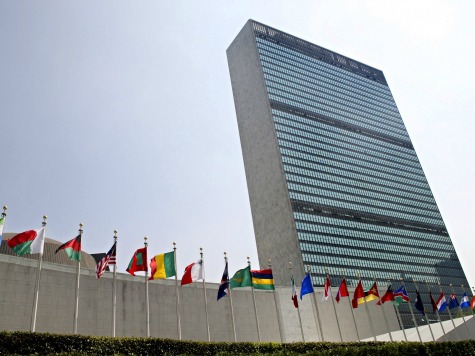Despite having voted against military intervention in Syria last year, the United Kingdom appears to be drifting closer to another war in the Middle East as Prime Minister David Cameron meets with world leaders at the United Nations, and rumours abound of a parliamentary recall on Friday.
When asked by American station NBC whether the Royal Air Force would be joining in air-strikes already underway by an American-led coalition, Cameron said: “We certainly haven’t ruled it out, and we’re looking carefully at what role we can play in this coalition”. The Prime Minister has a full day of meetings with world leaders in New York today, including the Prime Minister of Iraq and the President of Iran.
The meeting between the British and Iraqi leaders is believed to have been called so Iraqi leader Haider al-Abadi can appeal to David Cameron to commit forces to the coalition against the Islamic Caliphate. This invitation to assist the Iraqi nation by its legitimate government gives the United Kingdom the pretext for legal military intervention, which was crucially lacking when the house of commons voted against Syrian assistance thirteen months ago.
Cameron’s other meeting today, with President Hassan Rouhani is remarkable not only because the Iranians have been until this stage excluded from coalition talks about defeating ISIS, but also that this marks the first bilateral talks between British and Iranian leaders since 1979.
As next-door neighbours, the Islamic Caliphate poses a real risk to Iran, which takes a significantly harder line on military action than most, advocating a ground invasion in addition to airstrikes.
Although bringing Iran onside in the fight against ISIS may seem like an unusual move considering the country has been considered a ‘Pariah state’ for much of the past three decades, Cameron remains steadfast on his opposition to their Nuclear programme.
Speaking on NBC he said: “I will do it not having softened in any way my views about the things that Iran has done and continues to do. I will be very clear. We think they are wrong to have this nuclear weapon program. We think they are wrong to support terrorist organizations.
“It’ll be a tough conversation. I’m not saying that my enemy’s enemy is my friend. I don’t believe that. But the fact is if we want to have a successful, democratic, pluralistic Iraq and if we want to have a successful, democratic, pluralistic Syria –Iran can play a constructive role in helping to bring that about”.
British armed forces, including the Royal Air Force maintains a comparatively significant presence in the area with officially undisclosed bases in several middle eastern nations, as well as Afghanistan, and the Sovereign military base in Cyprus.

COMMENTS
Please let us know if you're having issues with commenting.